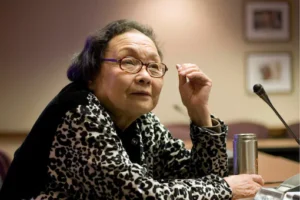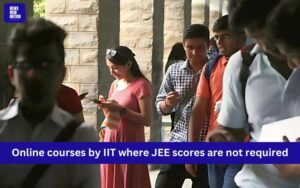
Gao Yaojie, a renowned Chinese doctor and activist who exposed a deadly AIDS epidemic rooted in reckless blood collection in rural China, passed away at her Upper Manhattan residence at the age of 95. Her death was confirmed by a Chinese politics scholar at Columbia University who managed her affairs in the United States, The New York Times (NYT) reported.
Gao, who was a gynecologist by training, became known in the late 1990s for her relentless efforts to uncover and halt the AIDS crisis affecting impoverished farmers, particularly in her home province of Henan. However, local Communist Party officials tried to silence her.
- FIGURE OF HISTORY
Born on December 19, 1927, in eastern Shandong Province, Gao’s life was marked by resilience during tumultuous historical events, including the Japanese invasion, the Chinese Civil War, and CCP leader Mao Zedong’s policies, which led to famine. Despite enduring detention and beatings during the Cultural Revolution, Gao’s spirit remained unbroken.
[0:24 pm, 11/12/2023] Anukriti Goswami: Gao’s pivotal role emerged in 1996 when she encountered her first AIDS patient in rural China. Investigating the epidemic’s origins in Henan, she uncovered unscrupulous blood collection stations, often with official backing, purchasing blood from villagers.
The stations, using slipshod methods, created a disastrous mechanism for transmitting infectious diseases, including HIV. The Chinese doctor had once claimed that 10 million people were infected with HIV in the country, far greater than Beijing’s official figure of 740,000.
- FOUGHT AIDS COVER-UP
Throughout her life, Gao faced adversity, including attempts to cover up the AIDS outbreak. She persisted in delivering aid and medicine to affected villagers, even as her advocacy garnered international attention. By the early 2000s, the AIDS crisis in rural China became a global scandal, overwhelming Chinese officials’ efforts to downplay its impact.
Despite accolades and recognition, Gao’s growing prominence became a source of embarrassment for Chinese authorities. They attempted to impede her travel, leading to her relocation to the United States in 2009. In her final years, Gao continued her mission as an AIDS educator, giving talks and writing books about her experiences.








